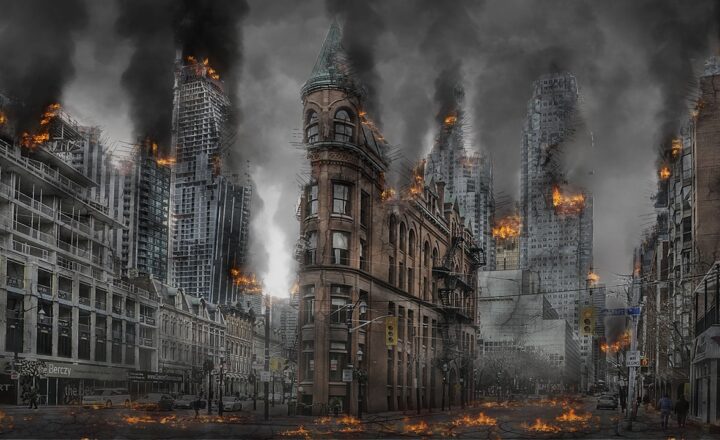Revisiting the Legendary Conflicts of the 20th Century: Lessons Learned
November 19, 2024

The 20th century was marked by a series of monumental conflicts that shaped the course of history, politics, and international relations. From the World Wars to ideological clashes during the Cold War, these legendary conflicts not only defined the era but also imparted crucial lessons that resonate even today. This article explores some of the significant conflicts of the 20th century, examining their causes, consequences, and the lessons we can learn from them.
1. World War I: The War to End All Wars
World War I, often referred to as the Great War, lasted from 1914 to 1918 and involved multiple nations across the globe. The assassination of Archduke Franz Ferdinand triggered a complex web of alliances and enmities that resulted in an unprecedented scale of warfare.
Causes of the Conflict
The root causes of World War I can be traced back to militarism, alliances, imperialism, and nationalism. The European powers had built intricate alliances that ensured that a conflict between two nations could quickly escalate into a full-scale war involving many countries.
Consequences of World War I
The war resulted in approximately 16 million deaths and 21 million wounded soldiers. It ended with the signing of the Treaty of Versailles, which imposed harsh reparations on Germany and redrew the map of Europe. This sense of humiliation and economic strain contributed to the rise of totalitarian regimes and ultimately led to World War II.
Lessons Learned
One of the pivotal lessons from World War I is the danger of entangled alliances and unchecked militarism. The idea of collective security and diplomatic negotiation emerged as essential tools in preventing such devastating conflicts in the future. Additionally, the need for economic stability is paramount, as economic distress can breed resentment and conflict.
2. World War II: A Global Struggle for Power
World War II (1939-1945) saw the rise of fascism and imperial expansion. The war involved most of the world’s nations, culminating in some of the deadliest battles in history and the horrors of the Holocaust.
Causes of the Conflict
The Treaty of Versailles’ punitive measures against Germany after World War I created an environment ripe for conflict. Economic downturns, such as the Great Depression, further exacerbated nationalism and fascism, leading to aggressive expansion by powers like Germany, Italy, and Japan.
Consequences of World War II
The Second World War caused an estimated 70-85 million fatalities and ended with the establishment of the United Nations, aimed at fostering international cooperation and preventing future conflicts. The war also led to the emergence of the United States and the Soviet Union as superpowers and initiated the Cold War era.
Lessons Learned
The crucial lesson from World War II highlights the ramifications of unchecked aggression and intolerance. The importance of international cooperation, peacekeeping, and the responsibility to protect (R2P) emerged as essential tenets in modern international relations. The notion that early intervention and collaboration can prevent escalation is one of the guiding principles in diplomatic circles today.
3. The Korean War: Ideological Battles
The Korean War (1950-1953), often referred to as the “Forgotten War,” was a significant conflict in the context of the Cold War, representing the ideological battle between communism and democracy.
Causes of the Conflict
Following Japan’s defeat in World War II, Korea was divided into North and South along the 38th parallel. The North, backed by the Soviet Union and later China, sought to unify the peninsula under a communist regime, while the South, supported by the United States and other allies, resisted.
Consequences of the Korean War
The war resulted in significant loss of life, with millions of Koreans dead and the peninsula remaining divided to this day. The conflict solidified the ongoing division between North and South Korea, subsequently leading to a prolonged military tension and the establishment of fortified borders.
Lessons Learned
One clear lesson from the Korean War is the potential for ideological conflicts to escalate into violent confrontations. Furthermore, it emphasizes the necessity of dialogue and diplomacy in resolving tensions before they lead to warfare. The concept of a comprehensive peace agreement remains crucial, as unresolved issues can perpetuate conflict.
4. The Vietnam War: The Cost of War
The Vietnam War (1955-1975) was a conflict that sparked significant social upheaval and protests, questioning the morality and strategy behind warfare.
Causes of the Conflict
The desire to prevent the spread of communism led to U.S. intervention in Vietnam, supporting the South Vietnamese government against the North’s communist forces. The conflict was deeply rooted in Vietnam’s colonial history and nationalism.
Consequences of the Vietnam War
The war resulted in the deaths of approximately 2 million to 3 million Vietnamese and around 58,000 U.S. troops. It deeply affected public opinion in the United States and led to legislative changes regarding military engagement.
Lessons Learned
The Vietnam War illustrates the consequences of military engagement without clear objectives and understanding of local dynamics. The war emphasized the importance of cultural awareness, public sentiment, and national interests in foreign policy. It also sparked discussions about the moral implications of warfare, leading to increased calls for transparency and accountability.
5. The Gulf War: A New Kind of Conflict
The Gulf War (1990-1991) marked a new era in warfare, characterized by advanced technology and multinational coalitions.
Causes of the Conflict
Iraq’s invasion of Kuwait in August 1990 was primarily fueled by disputes over oil and economic debts. The United States and its allies launched Operation Desert Storm to liberate Kuwait and restore regional stability.
Consequences of the Gulf War
The conflict resulted in significant destruction of Iraqi infrastructure and demonstrated the effectiveness of modern technology, particularly in air warfare. However, it also left a complex legacy and ongoing tensions in the region, leading to future conflicts and instability.
Lessons Learned
The Gulf War highlighted the importance of international coalitions in addressing global issues. It illustrated the power of advanced technology in modern warfare and emphasized the need for decisive action to maintain international order. However, it also raised questions about long-term consequences and the responsibility of nations post-conflict.
Conclusion: Learning from the Past
The conflicts of the 20th century encapsulate pivotal lessons that remain relevant today. Understanding the causes, consequences, and outcomes of these wars equips current and future generations with the knowledge to navigate present and future conflicts. As we revisit these legendary conflicts, it becomes imperative to harness the lessons learned to create a more peaceful and cooperative world, both locally and globally. By prioritizing dialogue, collaboration, and mutual understanding, we can work towards a future where the legacies of these struggles inform a more harmonious existence.







